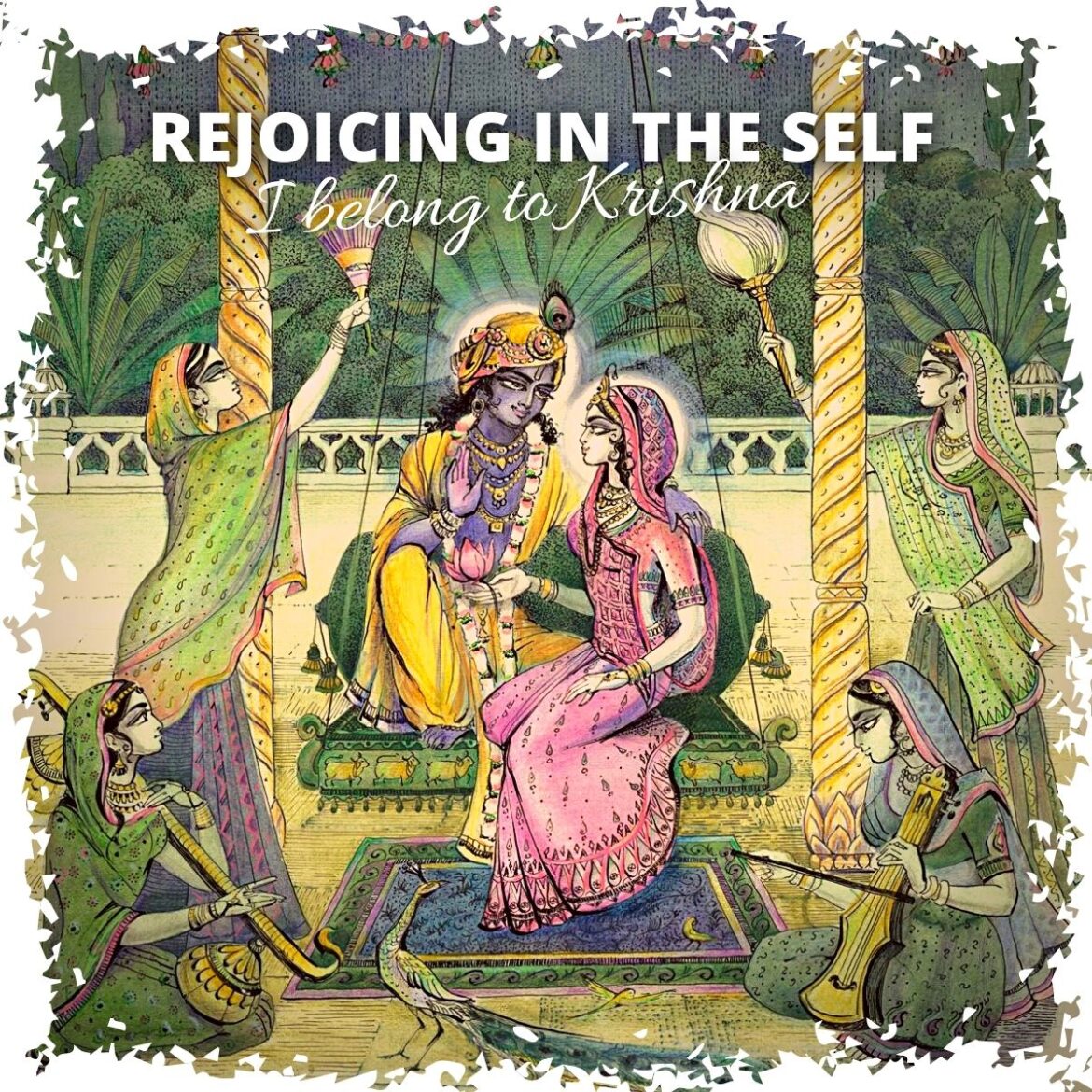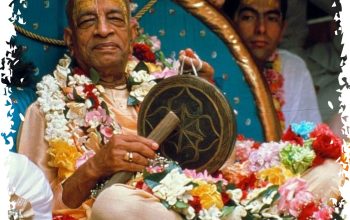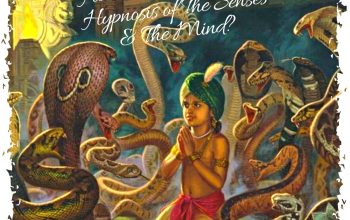I have often used the example of a restless child. Since it is impossible to make such a child motionless, it is necessary to give him some playthings or some pictures to look at. In this way, he will be engaged, or motionless in the sense that he will not be committing some mischief. But if one really wants to make him motionless, one must give him some engagement in Kṛṣṇa consciousness. Then there will be no scope for mischievous activities, due to realization in Kṛṣṇa consciousness.
To be engaged in Kṛṣṇa consciousness, one should first realize, “I am Kṛṣṇa’s. I am not this matter. I am not of this nation or of this society. I do not belong to this rascal or that rascal. I am simply Kṛṣṇa’s.”
This is motionless; this is full knowledge, realizing our actual position as part and parcel of Kṛṣṇa. As stated in Bhagavad-gītā 15.7, mamaivāṁśo jīva-loke: “The living entities in this conditioned world are My eternal, fragmental parts.” As soon as we understand this, we immediately cease our material activities, and this is what is meant by being motionless.
In this state, one sees the Self by the pure mind and relishes and rejoices in the Self. “Pure mind” means understanding, “I belong to Kṛṣṇa.” At the present moment, the mind is contaminated because we are thinking, “I belong to this; I belong to that.” The mind is pure when it understands, “I belong to Kṛṣṇa.”
Rejoicing in the Self means rejoicing with Kṛṣṇa. Kṛṣṇa is the Supersoul, or the Superself. I am the individual soul, or the individual self. The Superself and the self enjoy together. Enjoyment cannot be alone; there must be two. What experience do we have of solitary enjoyment? Solitary enjoyment is not possible. Enjoyment means two: Kṛṣṇa, who is the Supersoul, and the individual soul.
If one is convinced that “I am part and parcel of Kṛṣṇa,” one is not disturbed even in the midst of the greatest difficulties, because one knows that Kṛṣṇa will give protection. That is surrender.
To attain this position, one must try his best, use his intelligence, and believe in Kṛṣṇa. Bālasya neha śaraṇaṁ pitarau nṛsiṁha (Śrīmad-Bhāgavatam 7.9.19). If Kṛṣṇa does not protect us, nothing can save us. If Kṛṣṇa neglects us, there is no remedy, and whatever measures we take to try to protect ourselves will be ultimately defeated.
There may be many expert physicians treating a diseased man, but that is no guarantee that he will live. If Kṛṣṇa so wills, a person will die despite the best physicians and medicines. On the other hand, if Kṛṣṇa is protecting us, we will survive even without medical treatment.
When one is fully surrendered to Kṛṣṇa, he becomes happy, knowing that regardless of the situation, Kṛṣṇa will protect him. He is just like a child who is fully surrendered to his parents, confident that they are there to protect him. As stated by Yāmunācārya in his Stotra-ratna (43),
kadāham aikāntika-nitya-kiṅkaraḥ praharṣayiṣyāmi sanātha jīvitam
“O Lord, when shall I engage as Your permanent, eternal servant and always feel joyful to have such a perfect master?”
If we know that there is someone very powerful who is our patron and savior, aren’t we happy? But if we try to act on our own and at our own risk, how can we be happy? Happiness means being in Kṛṣṇa consciousness and being convinced that “Kṛṣṇa will give me protection,” and being true to Kṛṣṇa. It is not possible to be happy otherwise.
Episode 223 – Rejoicing & Relishing in the Self
Reading «The Path of Perfection» Chapter 5 | Listen here or at podlink.to/sravanam
Read or purchase the book at biglink.to/pathofperfection



